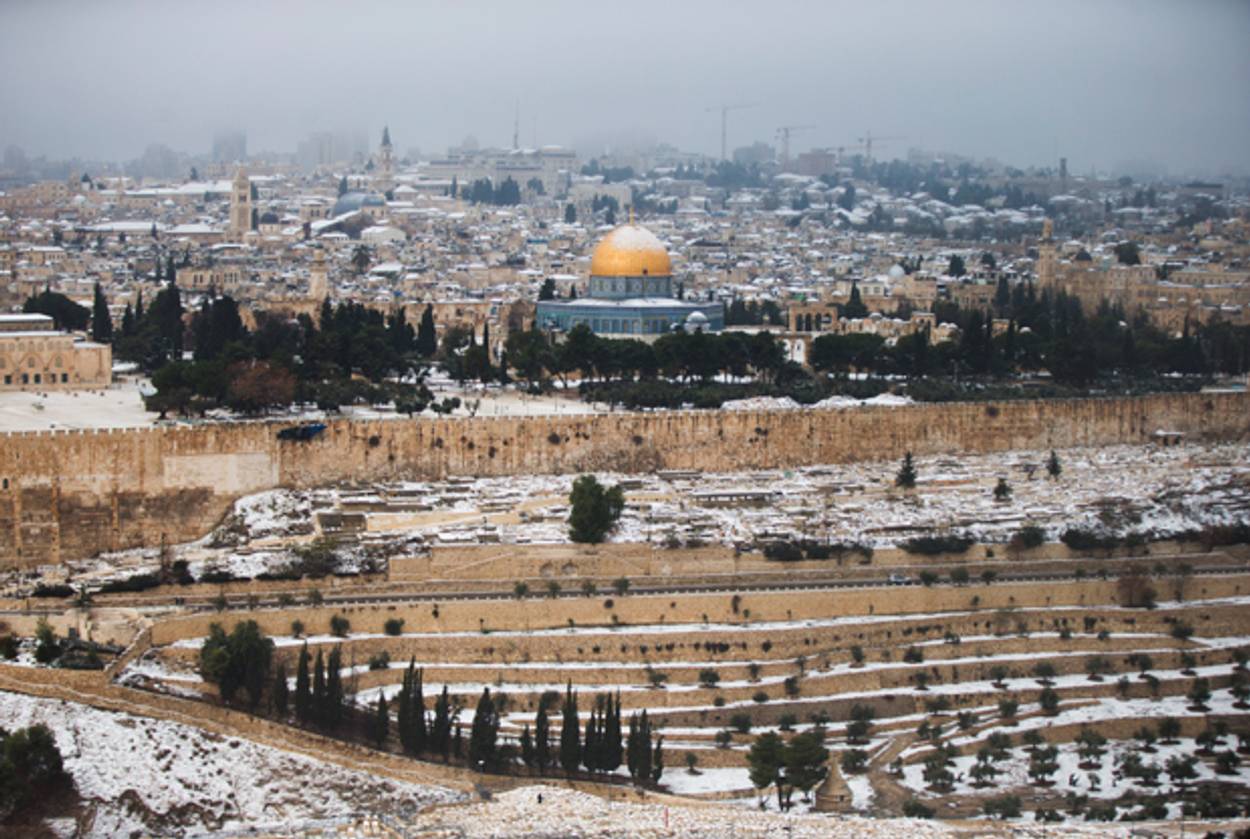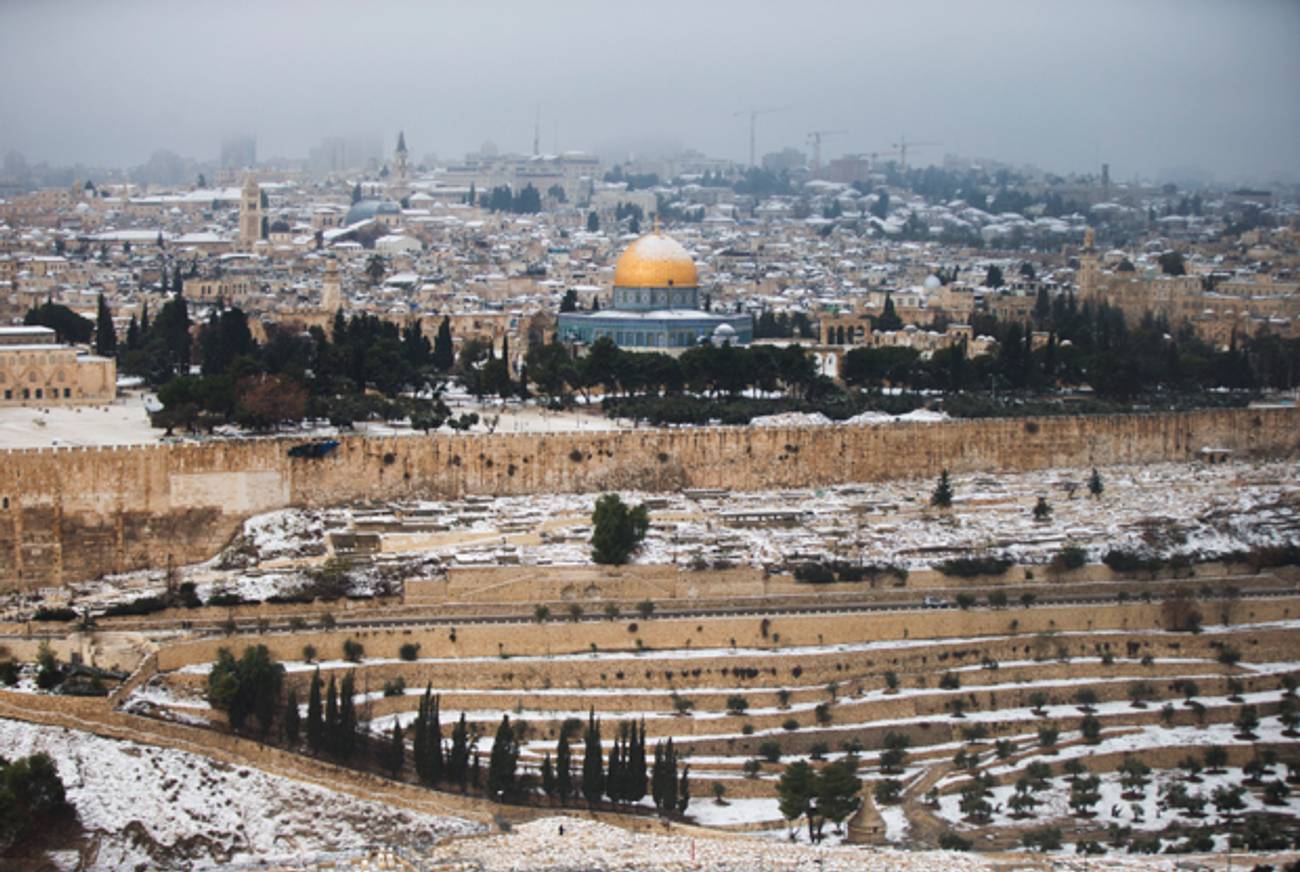Israeli Professor Likens the Occupation to Slavery
It’s as factually baseless and morally repugnant as it sounds




In politics, as in poetry, analogies matter, and for the same reason: the ability to contrast two things and shed light on their structural similarities is economical, elegant, and evocative. It’s why we take analogies seriously, and why we get so riled up when they’re misused.
It’s time to get riled up again: writing in Haaretz, a prominent Israeli academic has compared the Israeli occupation of the West Bank to slavery.
Or rather, she sort-of did. “I do not claim that slavery and the occupation are equivalent,” Eva Illouz wrote in her lengthy essay. “They differ significantly. But there are some analogies, in that the Jewish world has become splintered around two intractable moral claims about the treatment of Palestinians…. The debate about the occupation is not equivalent to the debate about slavery, but it bears, here and there, some resemblance to it. And it is for this reason that I use it as a strategy for thinking.”
A prominent sociologist and a professor at the Hebrew University, Illouz was less equivocal on which conclusions, if applied, her strategy for thinking might help one reach. “Slavery,” she writes, “is not only the fact of being turned into a tradable property. It is a set of social conditions that make someone’s existence closely determined by someone else’s decision, will and power.” And such a set of conditions, she argued in great detail, exists in the case of Israel’s treatment of the Palestinians.
I have immense respect for Illouz’s scholarly work, and count myself as her fan. But her deeply flawed argument—which, to judge by the number of times her essay has been forwarded to me since its publication this weekend, is enjoying its share of attention—deserves a sharp rebuttal let this morally repugnant analogy bloom any further. It’s easy enough to debunk on historical grounds, and I hope some prominent historian of slavery soon does; in the meantime, however, I wish to point out not the intellectual weakness of Illouz’s analogy but its absolute moral impoverishment.
At the outset of Illouz’s argument is the following dichotomy: the Jewish world, she tells us, is divided into two camps, “one that is dominated by such imperatives as ‘Israeli security,’ ‘Jewish identity’ and by the condemnation of ‘the world’s double standards’ and ‘Arabs’ unreliability’; and a second group of Jews, inside and outside Israel, for whom human rights, freedom, and the rule of law are as visceral and fundamental to their identity as membership to Judaism is for the first group. Supreme irony of history: Israel has splintered the Jewish people around two radically different moral visions of Jews and humanity.”
But Israel, happily, has done no such thing. It is quite possible for human beings—creatures that live everywhere but in the sparse and quiet theoretical realms occupied solely by academics and their abstract ideas—to abhor the occupation with all their might while also caring passionately about Israel’s security and lamenting the world’s double standards. I identify myself, and nearly all of my friends, not in one of Illouz’s camps but in both. As a longtime critic of the occupation, I believe that the only way to end the travesties of justice Illouz describes in her piece is for Israel to disengage from the Palestinians posthaste. I agree with her—and, for that matter, with the majority of Israelis and Palestinians—that the occupation, in the long run, is detrimental to Israel’s moral, economic, diplomatic, and militaristic well-being. But decrying Israel’s needless arrests, wanton violence, or hard-hearted policies—all of which I’ve done, in print or in person—oughtn’t to preclude one from observing that even Palestinian leftists are marching against negotiations with the Jewish state, or that in the midst of said negotiations the Palestinian president, Mahmoud Abbas, welcomed the convicted murderers Israel had released as a gesture of good will by celebrating them as heroes and saying not a peep about peace, or that a fair survey of the barriers to reconciliation erected over the course of the last two decades would assign a healthy dose of blame on both sides of the conflict. To assume otherwise is Manichean or, worse, utterly devoid of real human empathy, the grace without which no intellectual observation is worth a damn.
The Jews, however, are not the only ones in Illouz’s essay devoid of any real sense of agency and forced to play their prescribed roles in the macabre theater of history. The Palestinians fall into the same dark bin. “Slavery,” Illouz writes in what is perhaps the essay’s key sentence, “is not only the fact of being turned into a tradable property. It is a set of social conditions that make someone’s existence closely determined by someone else’s decision, will and power.”
There are, by latest estimates, 2,657,029 Palestinians living in the West Bank and another 1,763,387 Palestinians living in the Gaza Strip. If their existence is closely determined by anyone’s decision, it’s that of the governments they had freely elected. And when they fall victim to will and power, it’s not always the will and the power of the Israelis: according to the Palestinian Human Rights Monitoring Group, for example, in the ten-year period between 1993 to 2003—which included the outbreak of the second Palestinians intifada—16 percent of all Palestinian civilian deaths were caused “by Palestinian groups or individuals,” often as a result of infighting between various factions vying for power.
These observations, naturally, only complicate the black-and-white beauty of Illouz’s slavery analogy, and as such go unnoticed. And that is an insult not only to those of us who struggle to keep our thinking on this complex issue grounded and free of fevered dogma, but also to the memory of the very real victims of the very real evils of slavery, whose appalling torment is now watered down by an inane bit of rhetoric that finds structural similarities between military occupation and the treatment of human beings as soulless chattel. If there is indeed a dichotomy in the Jewish community, let it be between those of us who thumb the almanac of historical evils searching for some feint trace of likelihood with which to kindle our outrage and those of us who know better.
Liel Leibovitz is editor-at-large for Tablet Magazine and a host of its weekly culture podcast Unorthodox and daily Talmud podcast Take One. He is the editor of Zionism: The Tablet Guide.